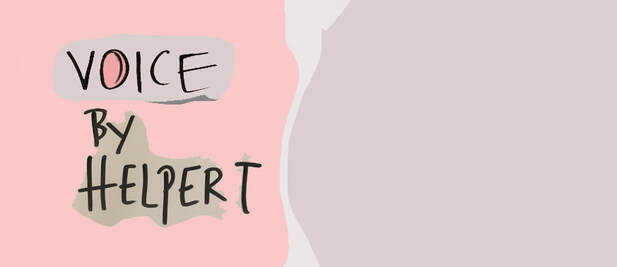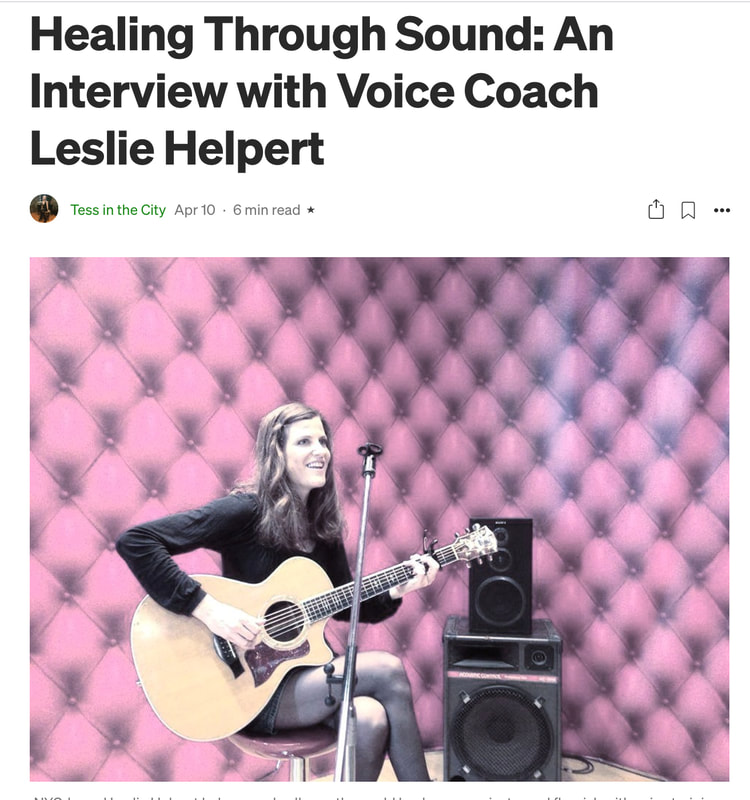• MEDIA •
|
Above: Interview with Tess Congo for Luna Luna and Medium.
Conversations from THE MECHANICS of SELF-TRUST (2020 Interview Series)
With Tom Kubik |
Podcast Interview with Forbes and Inc. Mag contributor, consultant Bruce Eckfeldt: DIRECT LISTEN LINK HERE
Below: Interview on The Embodiment Podcast: 2021/22
Suzie NY's publication:
Breathe and Your Voice Will Be There.12/8/19 (above) Leslie Helpert featured on radio show interview with the lovely Marc Curcio and Danny Lippett on BARNAMERICA, 2017
Interview for Voice Immersion Sessions @ Brooklyn Yoga Studio 2018
|
For more press, featured articles, etc. please go to this link

